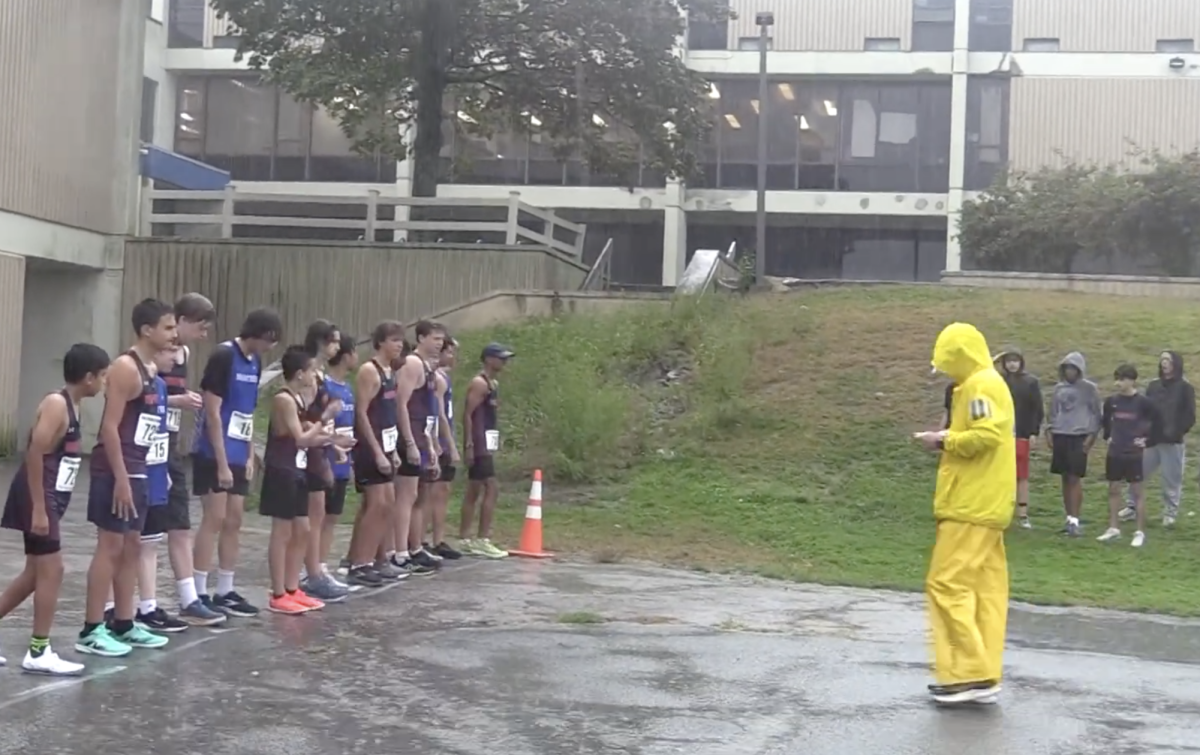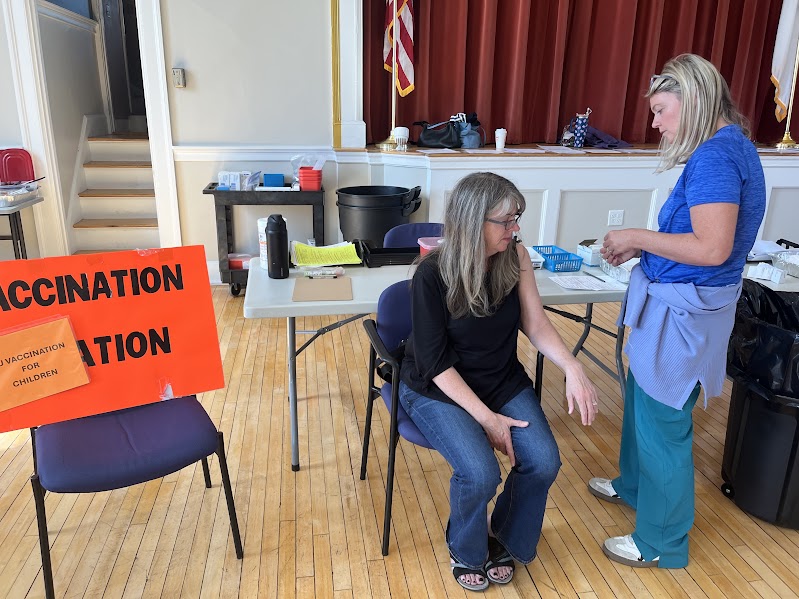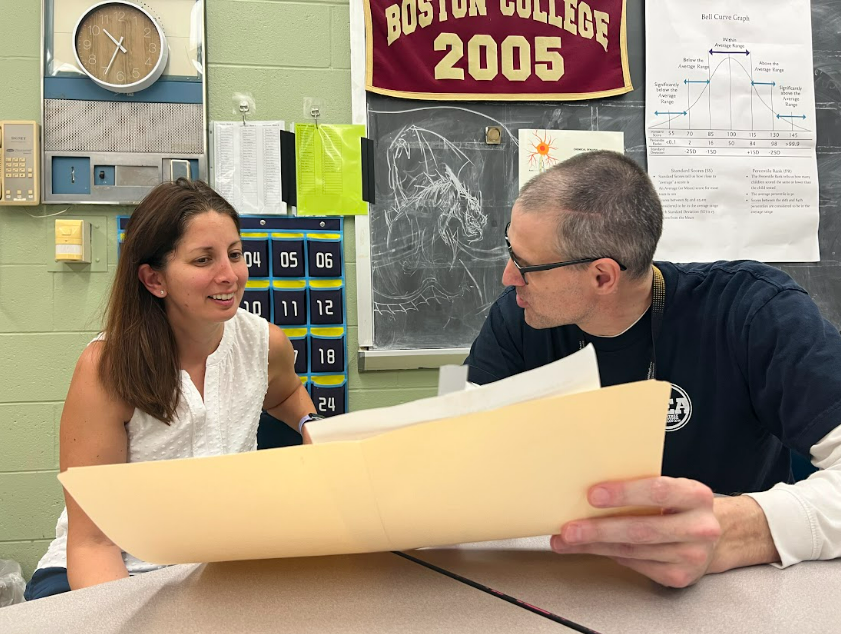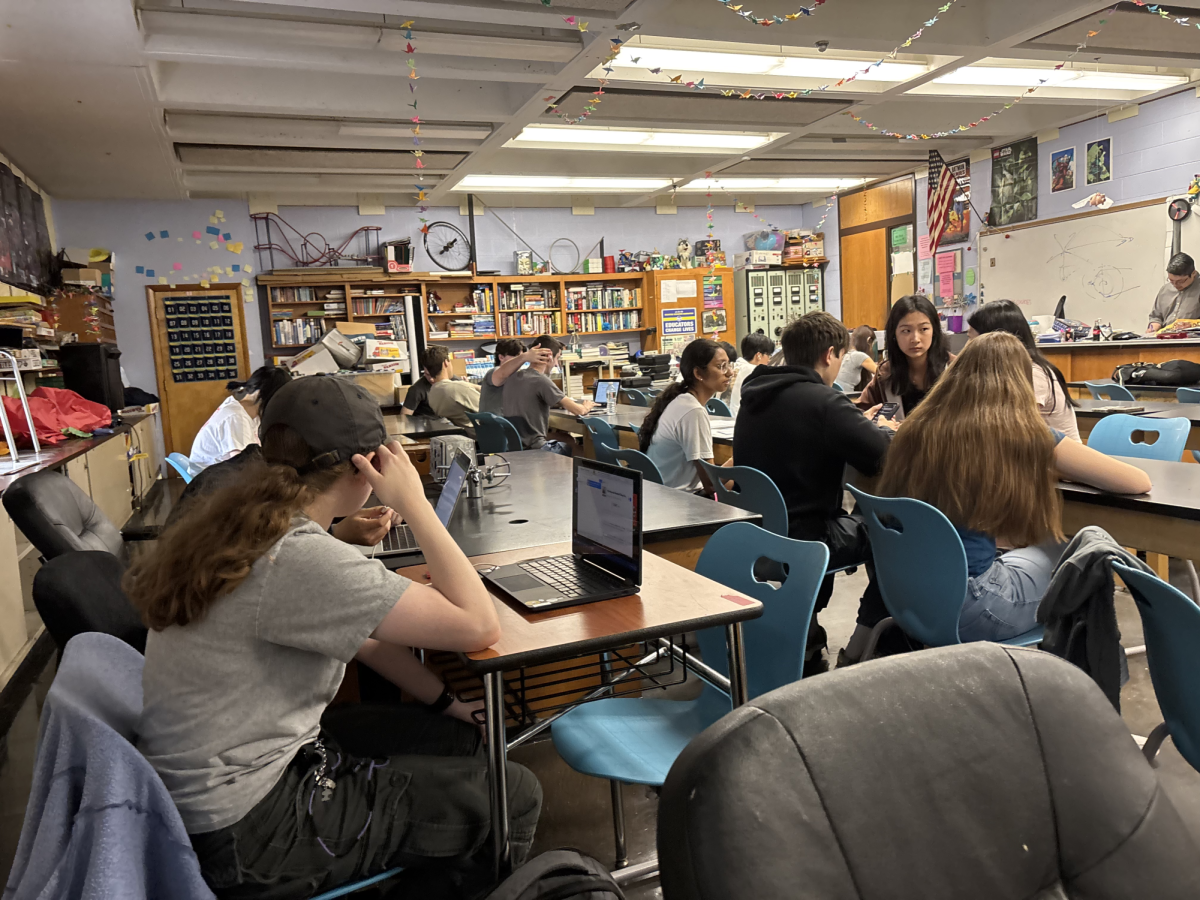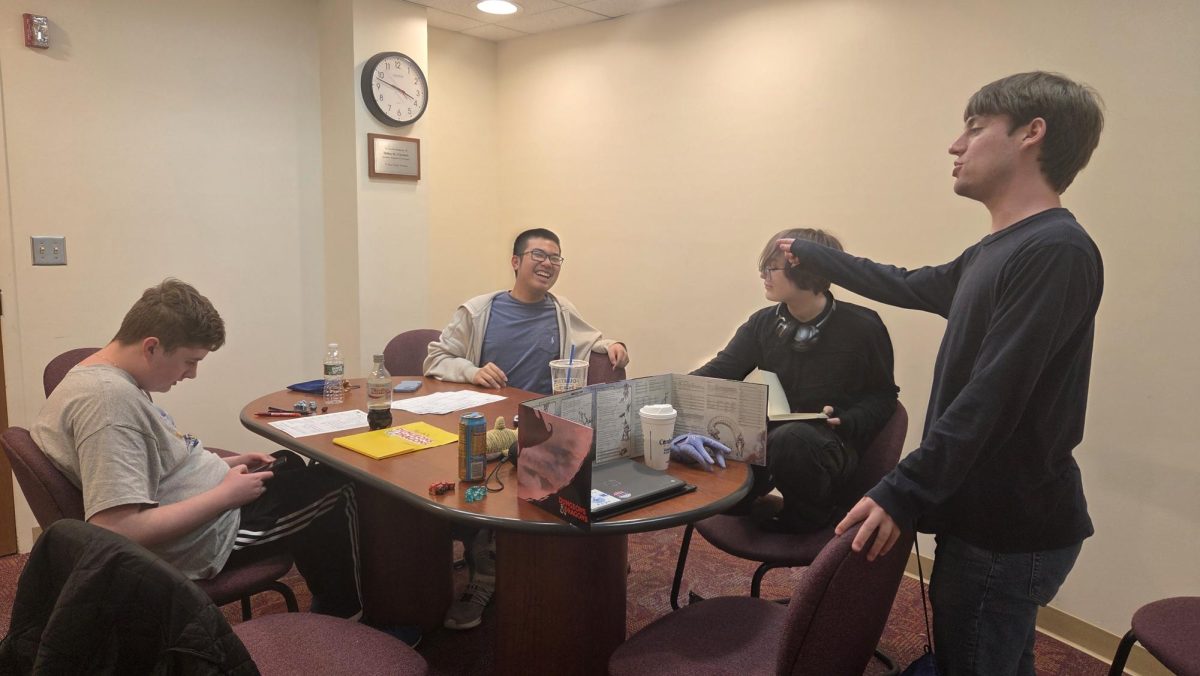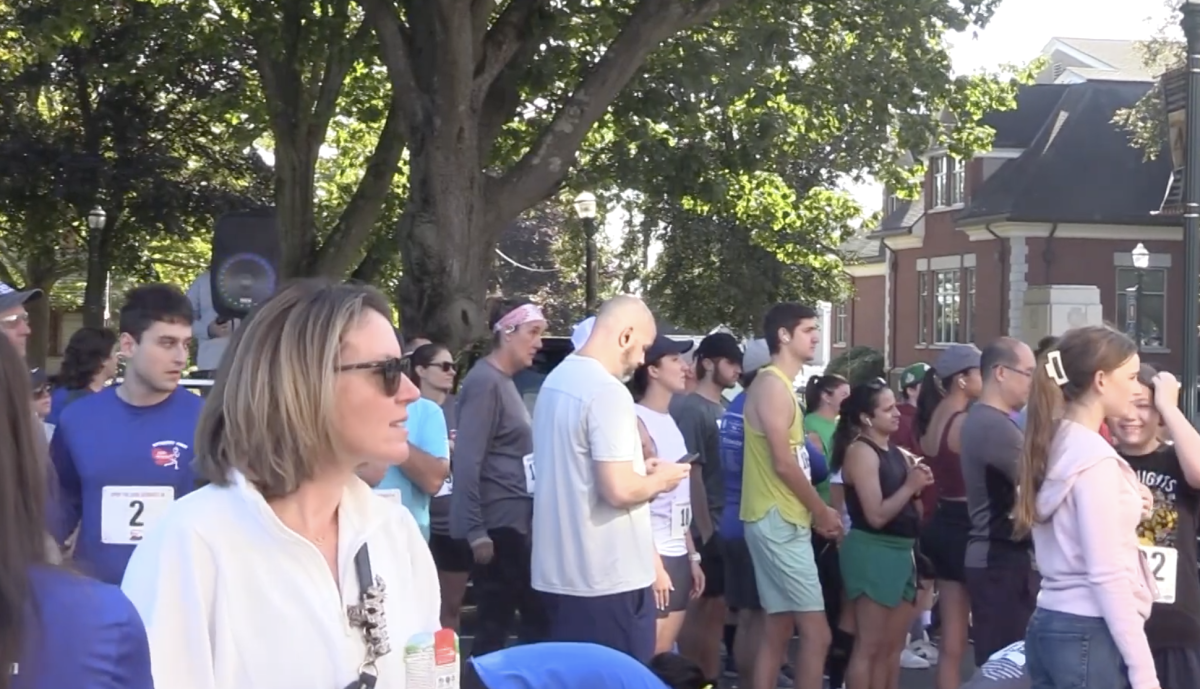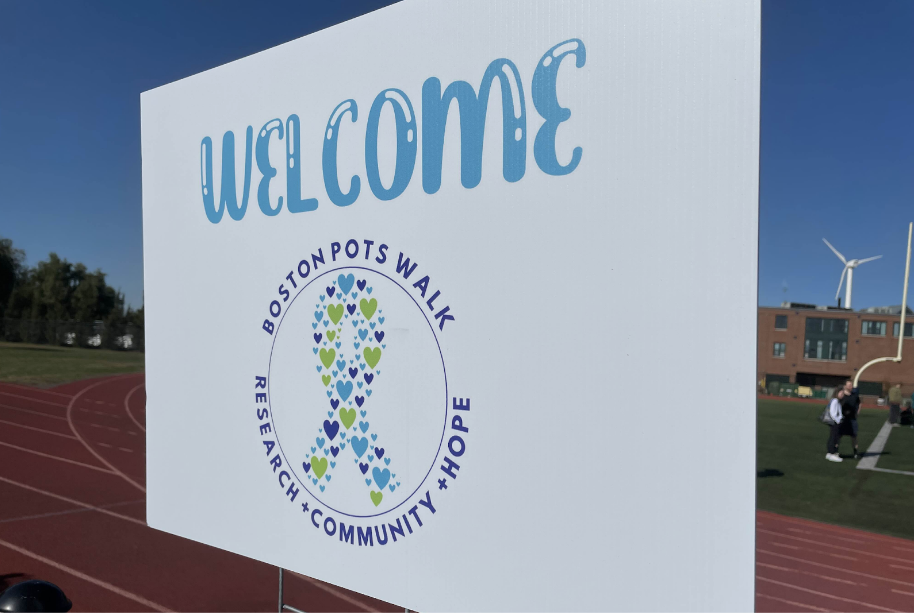On October 19th, the Hormel Stadium in Medford was brimming with teal as hordes of people walked and ran in support for POTS research.
“This is called the Boston POTS walk, I believe this is the 8th year,” says event organizer Lindsay Spada. “Jackie is around here somewhere, we call her the POTS Mom. Her daughter developed POTS at a young age and they’ve done a ton of advocacy, so she wanted to start an event to raise money and help fundraise for research, advocacy, and education.”
“I’ve been living with [POTS] since 2009, and I was kind of just in denial and living in my own little world trying to pretend like I was normal. But finally, I was like, “I want to do something.” I want to connect with other people who have the same thing going on, and I also want to try to help people if I can, because you know, I’m one of the ones who can stand and move and do things,” continues Spada.
Ever since 2012, October has been known globally as Dysautonomia Awareness Month, a month to educate people about Dysautonomia and all the disorders under that umbrella. POTS, or Postural Orthostatic Tachycardia Syndrome, is one of those disorders.
“[POTS symptoms manifest in] a very aggressive rise in heart rate when you’re standing. I think normally, it’s like, fifteen beats per second. On top of that, it can present with crazy symptoms like drops in blood pressure, dizziness, and fatigue. It’s not just standing and having a high heart rate, it affects your daily life in many ways,” Spada explains.
“And since POTS is a syndrome, there are a lot of other underlying conditions that people with POTS have too. Part of the research Dysautonomia International funds hopes to get to the underlying cause of POTS and everything else that manifests.” Mary Artacho, another event organizer, continues.
According to Dysautonomia International, around three to six million Americans are affected by POTS, especially women (Dysautonomia International). But despite the disorder’s prevalence, not many people know about it, and it isn’t well researched either. Organizers of the annual Boston POTS walk hope to change this through events like this one.
“I’m just thinking of what it looked like when it started, and where we are now with medical diagnoses for POTS— people in the field are actually recognizing it, but we have a long way to go. We don’t know what causes it, we don’t have treatments that are effective, we don’t have a cure, and that’s what we’re here for,” says Artacho.


